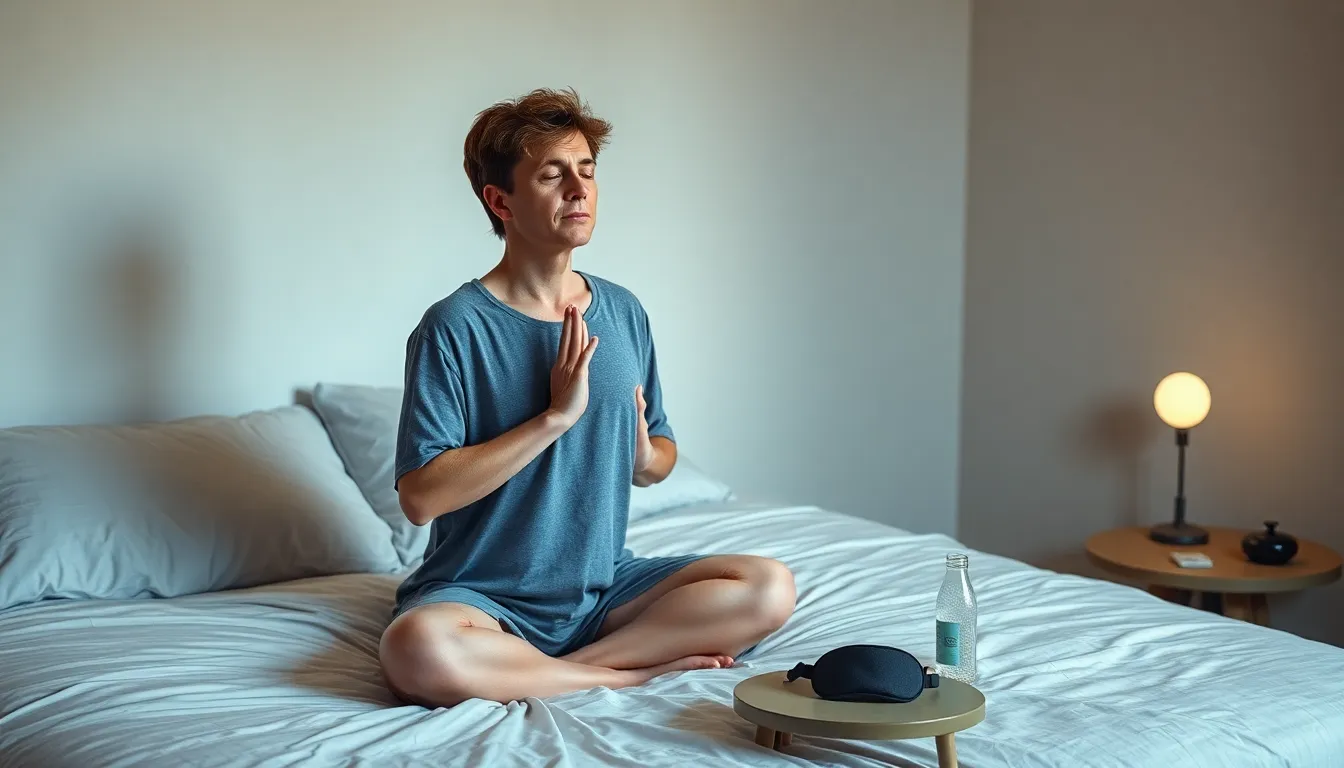In today’s fast-paced world, sleep disorders are becoming increasingly common, affecting millions of people. From insomnia to sleep apnea, these conditions can disrupt daily life and overall well-being. Sleep disorder clinics have emerged as vital resources for those seeking relief and effective treatment options.
These specialized facilities offer comprehensive evaluations and personalized care plans tailored to each individual’s needs. With advanced diagnostic tools and expert staff, they help patients reclaim their sleep and improve their quality of life. Understanding the role of sleep disorder clinics can be the first step toward a healthier, more restful future.
Table of Contents
ToggleOverview of Sleep Disorder Clinics
Sleep disorder clinics serve as critical resources for individuals focused on improving sleep quality. These specialized facilities offer comprehensive assessments and tailored treatment plans for various sleep-related issues.
Importance of Sleep Health
Sleep health significantly influences overall well-being. Adequate sleep enhances cognitive function, mood regulation, and immune response. Sleep disorders can lead to chronic health conditions, including obesity, diabetes, and cardiovascular diseases. Prioritizing sleep health contributes to improved daily functioning and long-term wellness.
Common Sleep Disorders Treated
Sleep disorder clinics address a variety of prevalent sleep disorders, including:
- Insomnia: Characterized by difficulty falling or staying asleep, insomnia affects millions globally, impacting productivity and mental health.
- Sleep Apnea: A serious condition marked by interrupted breathing during sleep, sleep apnea can cause excessive daytime sleepiness and increase the risk of heart disease.
- Restless Legs Syndrome (RLS): This disorder creates uncomfortable sensations in the legs, often leading to disruptive nighttime movements and difficulty sleeping.
- Narcolepsy: A neurological disorder causing uncontrollable daytime sleepiness and sudden sleep attacks, narcolepsy significantly impacts daily life.
- Parasomnias: This group includes various abnormal behaviors during sleep, such as sleepwalking or night terrors, which can disrupt sleep cycles.
Understanding and treating these disorders at sleep disorder clinics facilitates better sleep and enhances overall health.
Types of Treatments Offered

Sleep disorder clinics provide a variety of effective treatments designed to address diverse sleep-related issues. These treatments include behavioral therapy and medical interventions.
Behavioral Therapy
Behavioral therapy employs techniques aimed at modifying sleep-related behaviors and thought patterns. Cognitive Behavioral Therapy for Insomnia (CBT-I) helps individuals identify and alter negative beliefs about sleep. This treatment includes:
- Sleep restriction therapy: Reduces time spent in bed awake, promoting more consolidated sleep.
- Stimulus control therapy: Reinforces the connection between bed and sleep by establishing specific sleep cues.
- Relaxation training: Teaches methods such as deep breathing and progressive muscle relaxation to ease tension before sleep.
These approaches empower patients to develop healthier sleep habits and strategies for managing insomnia and other sleep disorders.
Medical Interventions
Medical interventions focus on the pharmacological treatment of various sleep disorders. Commonly prescribed medications include:
- Sleep aids: Such as benzodiazepines or non-benzodiazepine sedative-hypnotics, for short-term insomnia treatment.
- Stimulants: Used for narcolepsy to enhance wakefulness during the day.
- Continuous Positive Airway Pressure (CPAP): A common treatment for obstructive sleep apnea, providing a constant stream of air to keep airways open during sleep.
Clinics often customize medication regimens based on individual patient needs and potential side effects, ensuring a comprehensive approach to managing sleep disorders.
Choosing the Right Sleep Disorder Clinic
Selecting a suitable sleep disorder clinic is crucial for effective treatment and management of sleep-related issues. Several factors and questions can guide this decision-making process.
Factors to Consider
- Credentials and Qualifications: Verify that the clinic’s staff includes board-certified sleep specialists. Their expertise ensures proper evaluation and treatment of sleep disorders.
- Services Offered: Assess the range of diagnostic tests and treatments available. Look for clinics providing comprehensive evaluations, including polysomnography, home sleep tests, and a variety of therapeutic options.
- Reputation: Research patient reviews and testimonials. High ratings often indicate quality care and successful treatment outcomes.
- Location and Accessibility: Consider the clinic’s proximity to home. Accessibility contributes to consistent follow-up visits and adherence to treatment regimens.
- Insurance Acceptance: Check whether the clinic accepts insurance plans. Coverage can significantly reduce out-of-pocket costs for diagnostic tests and treatments.
Questions to Ask
- What diagnostic methods are utilized? Understanding available testing options helps ensure appropriate evaluations for specific sleep disorders.
- What treatment plans are customized for individual needs? Specificity in treatment regimens demonstrates the clinic’s commitment to personalized care.
- What follow-up support can patients expect? Inquire about ongoing monitoring and adjustments to treatment plans. Continuous support enhances long-term success.
- How experienced are the specialists with specific disorders? Expertise in particular sleep disorders, like insomnia or sleep apnea, can lead to better therapeutic outcomes.
- What lifestyle changes are recommended alongside treatment? A holistic approach to sleep health often includes guidance on improving sleep hygiene and daily habits.
The Role of Technology in Diagnosis
Technology plays a vital role in diagnosing sleep disorders, enhancing the accuracy of assessments and the effectiveness of treatments.
Sleep Studies and Monitoring
Sleep studies, or polysomnography, utilize advanced technology to capture data during sleep. Clinics employ devices like electroencephalograms (EEGs) to monitor brain activity, along with sensors to track eye movements, heart rate, and breathing patterns. These studies provide comprehensive insight into sleep stages and disturbances. Home sleep testing offers a convenient alternative, enabling patients to gather data in a familiar environment. Both methods facilitate precise diagnoses of conditions such as sleep apnea and insomnia, aiding tailored treatment plans.
Innovative Treatment Options
Innovative treatment options draw on technological advancements to enhance patient outcomes. Devices like wearable sleep trackers gather information on sleep patterns, helping individuals understand their sleep habits better. Continuous Positive Airway Pressure (CPAP) machines represent a significant advancement for sleep apnea patients, delivering pressurized air to keep airways open. Mobile applications offer behavioral therapy techniques, enabling patients to address sleep-related issues actively. Furthermore, telemedicine allows patients to consult specialists remotely, expanding access to expert care. Technology streamlines the treatment process, promoting better sleep health and overall well-being.
Sleep disorder clinics play a vital role in addressing the challenges posed by various sleep-related issues. By offering tailored assessments and comprehensive treatment plans, these clinics empower individuals to reclaim their sleep health. The integration of advanced technology and expert care ensures patients receive the most effective interventions available.
As awareness of sleep disorders continues to grow, so does the importance of seeking help from specialized clinics. Making informed choices about clinic selection can significantly impact one’s journey toward better sleep. Prioritizing sleep health not only enhances daily functioning but also contributes to overall well-being. Investing in quality sleep is an essential step toward a healthier future.




